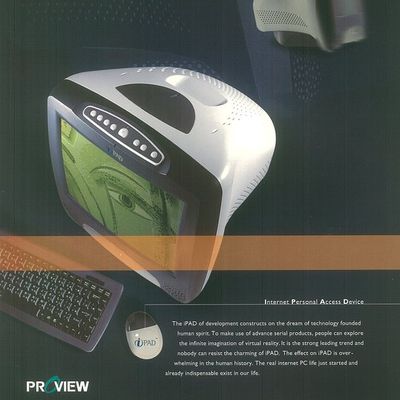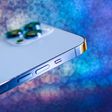Apple and Proview Face Off in Shanghai Court Over iPad Trademark
While Proview has had some success in its battle against Apple's use of the "iPad" trademark in China with minor court decisions against local retailers, the two companies are now going directly head-to-head in a higher-profile case underway in Shanghai. There has been no decision in the case yet, but lawyers for both sides spent four hours today laying out their evidence for the presiding judge. Reuters notes that Apple has gone on the offensive by citing the impact on the Chinese economy if iPad sales were to be halted, given the iPad's massive popularity and Proview's current lack of any product offering under that name.
"Proview has no product, no markets, no customers and no suppliers. It has nothing," Hu Jinnan, a partner at Guangdong Shendadi law firm, which is representing Apple in the case, told the court.
"Apple has huge sales in China. Its fans line up to buy Apple products. The ban, if executed, would not only hurt Apple sales but it would also hurt China's national interest."
Apple's tactics of highlighting the economic impact of the iPad and calling into question the validity of Proview's trademark given a lack of physical product using the name are side arguments to its primary claims, which hold that Proview agreed to transfer the rights to an Apple-held company in late 2009 and has failed to uphold its part of the deal.
A Hong Kong court
sided with Apple last year, ruling that Proview and its subsidiaries had colluded to extort significant sums of money from Apple in refusing to hand over the Chinese rights to the trademark. But Apple needs to convince courts in mainland China to adopt the same view as it seeks to thwart Proview's attempts at halting iPad sales and its requests for as much as $2 billion in compensation. Proview has argued that the Hong Kong ruling is inadmissible in Chinese courts, although Apple could presumably submit the same primary evidence to the Chinese court that it did in the Hong Kong case, seeking to convince the Chinese judge to independently come to the same conclusion.
Popular Stories
Apple's next-generation iPhone 17 Pro and iPhone 17 Pro Max are just over two months away, and there are plenty of rumors about the devices.
Below, we recap key changes rumored for the iPhone 17 Pro models.
Latest Rumors
These rumors surfaced in June and July:Apple logo repositioned: Apple's logo may have a lower position on the back of the iPhone 17 Pro models, compared to previous...
Apple should unveil the iPhone 17 series in September, and there might be one bigger difference between the Pro and Pro Max models this year.
As always, the Pro Max model will be larger than the Pro model:iPhone 17 Pro: 6.3-inch display
iPhone 17 Pro Max: 6.9-inch displayGiven the Pro Max is physically larger than the Pro, it has more internal space, allowing for a larger battery and...
In 2020, Apple added a digital car key feature to its Wallet app, allowing users to lock, unlock, and start a compatible vehicle with an iPhone or Apple Watch. The feature is currently offered by select automakers, including Audi, BMW, Hyundai, Kia, Genesis, Mercedes-Benz, Volvo, and a handful of others, and it is set to expand further.
Apple has a web page with a list of vehicle models that ...
The calendar has turned to July, meaning that 2025 is now more than half over. And while the summer months are often quiet for Apple, the company still has more than a dozen products coming later this year, according to rumors.
Below, we have outlined at least 15 new Apple products that are expected to launch later this year, along with key rumored features for each.
iPhone 17 Series
iPho...
Apple is continuing to refine and update iOS 26, and beta three features smaller changes than we saw in beta 2, plus further tweaks to the Liquid Glass design. Apple is gearing up for the next phase of beta testing, and the company has promised that a public beta is set to come out in July.
Transparency
In some apps like Apple Music, Podcasts, and the App Store, Apple has toned down the...
Since the iPhone X in 2017, all of Apple's highest-end iPhone models have featured either stainless steel or titanium frames, but it has now been rumored that this design decision will be coming to an end with the iPhone 17 Pro models later this year.
In a post on Chinese social media platform Weibo today, the account Instant Digital said that the iPhone 17 Pro models will have an aluminum...
New renders today provide the best look yet relocated Apple logo and redesigned MagSafe magnet array of the iPhone 17 Pro and iPhone 17 Pro Max.
Image via Majin Bu.
Several of the design changes coming to the iPhone 17 Pro model have been rumored for some time, such as the elongated camera bump that spans the full width of the device, with the LiDAR Scanner and flash moving to the right side.
...
Amazon is soon to be back with its annual summertime Prime Day event, lasting for four days from July 8-11, the longest Prime Day yet. As it does every year, Prime Day offers shoppers a huge selection of deals across Amazon's storefront, and there are already many deals you can get on sale ahead of the event.
Note: MacRumors is an affiliate partner with Amazon. When you click a link and make a ...
Apple's position as the dominant force in the global true wireless stereo (TWS) earbud market is expected to continue through 2025, according to Counterpoint Research.
The forecast outlines a 3% year-over-year increase in global TWS unit shipments for 2025, signaling a transition from rapid growth to a more mature phase for the category. While Apple is set to remain the leading brand by...






















